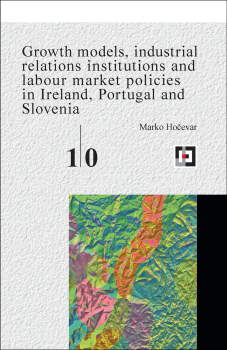Growth models, industrial relations institutions and labour market policies in Ireland, Portugal and Slovenia: explaining capitalist convergence and divergence
Keywords:
convergence, capitalism, growth models, industrial relationsSynopsis
This book is focused on the developmental trajectories of capitalism within a globalised accumulation cycle and the specific features of national capitalisms over a longer period. The possibility of someone claiming that the presented analysis amounts to a simplified explanation always exists because it does not focus solely on institutional and ahistorical analysis, nor on specific sectors or industries, but instead takes the more general picture into account. The book looks at different growth models, industrial relations, labour market policies and policy outcomes, power relations, global and regional political and economic processes, a range of national and international developmental strategies, path dependency, junctures, and diverging/converging trajectories of national capitalisms in the last 40 years. This longer perspective is considered to capture the various breaks, convergence and divergence apparent in the framework of the end of the Fordist growth regime and during the strong push towards liberalisation and marketisation under the banner of neoliberalism.
Downloads

Downloads
Published
License

This work is licensed under a Creative Commons Attribution-ShareAlike 4.0 International License.

